The UAE Is Giving Haftar American Weapons

Field Marshal Khalifa Haftar. Source: МИД России/Flickr
The New York Times reports on the discovery of U.S.-made weapons in a captured arsenal belonging to the so-called Libyan National Army led by the UAE and Saudi-backed warlord Khalifa Haftar:
Libyan government fighters discovered a cache of powerful American missiles, usually sold only to close American allies, at a captured rebel base in the mountains south of Tripoli this week.The four Javelin anti-tank missiles, which cost more than $170,000 each, had ended up bolstering the arsenal of Gen. Khalifa Hifter, whose forces are waging a military campaign to take over Libya and overthrow a government the United States supports.Markings on the missiles’ shipping containers indicate that they were originally sold to the United Arab Emirates, an important American partner, in 2008.
It isn’t surprising that the UAE would be funneling some of the weapons it acquired from the U.S. to its proxies in Libya, since they and other members of the Saudi coalition have done the same thing with militias in Yemen for years. Handing over U.S.-made weapons to third parties violates the agreements that these governments made with Washington, and it confirms once again that their promises to the U.S. don’t mean anything. Even when the U.S. has agreements with these clients about what they will do with the weapons our government sells them, they cannot be trusted to do what they say.
This is destructive and destabilizing behavior, and it is behavior made possible by the continued supply of weapons to and support for the UAE and other clients like it. It also reminds us that the UAE isn’t using the weapons the U.S. provides them for their own defense, but for arming militias and war criminals as they tear apart Yemen and Libya. When Trump abused his power to expedite delivery of weapons to the UAE and Saudi Arabia last month, we need to understand that this is what the recipients are going to do with at least some of the weapons they receive. This is just one more reason why the U.S. should halt all arms sales and cut off all other military assistance to the UAE and Saudi Arabia.
The official line from the administration is that they expect U.S. clients to abide by their end-use agreements, but we know in practice that the Saudis and Emiratis have been getting away with violating these agreements over the course of the four-year war on Yemen. Last year, a documentary investigation into the practice of diverting these weapons to militias in Yemen found that the arms suppliers knew about it and had done nothing about it:
“Where we found abuse of the end user certification system, we sought explanations from the arms companies and government who authorised the sales to the coalition. Many simply turn a blind eye,” said Abo-Elgheit.The documentary accuses the Saudi coalition, weapons suppliers and governments of a sustained breach of “end user” certification laws stretching back to the beginning of the conflict in 2015 [bold mine-DL]. In 2016 UN Security Council issued a warning over “lax accountability” on the part of the coalition, and expressed concern that weapons may be diverted to the black market.No penalties have ever been levied for breaches [bold mine-DL]. Certificates are meant to provide an assurance to those selling arms, or authorising their sale, that weapons will be used only by the buyer, and not passed or sold on.Abo-Elgheit and his team compiled evidence that calls into question the credibility of such certificates signed by Saudi Arabia and UAE.
It seems unlikely that the UAE will pay a price for this latest violation. The Javelin missiles in Libya were discovered as a result of a successful attack by the forces of the internationally recognized Tripoli government. Haftar’s forces had been driven back as part of their ongoing, unsuccessful assault on the capital:
The report continues:
“The U.A.E. has been supplying advanced weapons to the Libyan theater for years,” said Oded Berkowitz, an Israeli security analyst who specializes in the Libyan conflict. “But now they seem to be throwing everything at it. And some of these weapons, like the Javelins, are real game changers.”The controversy over the Javelin missiles suggests that the Emiratis are flexing their military muscle with little regard for rules set by their American allies, said Frederic Wehrey, a scholar at the Carnegie Institute and author of a recent book on Libya.“This is the new era we’re in,” he said.
The UAE and Saudi Arabia both have little regard for the rules set by the U.S. because they assume that Washington will continue to indulge them in whatever they want to do. That didn’t start with the Trump administration, but Trump’s willingness to abuse his power with the bogus “emergency” to continue the flow of weapons to the Saudis and Emiratis has given these despotic clients every reason to think that there are no consequences for breaking their promises to the U.S.
Posted in foreign policy, politics. Tagged Libya, Yemen, Saudi Arabia, UAE, Mohamed Abo-Elgheit, Khalifa Haftar, Frederic Wehrey, Oded Berkowitz.


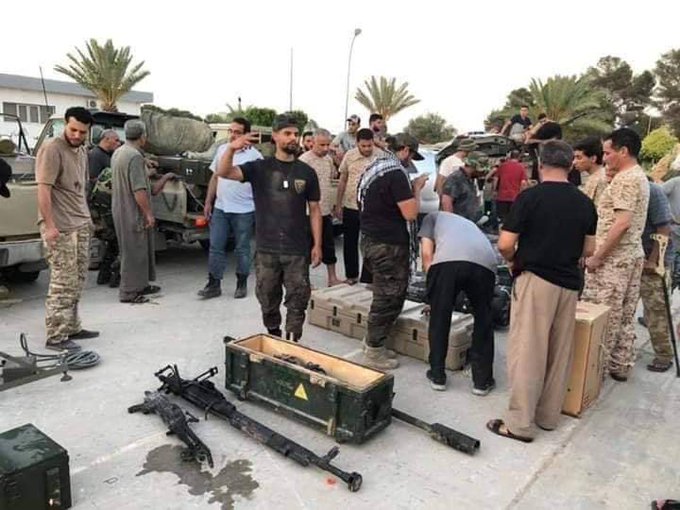
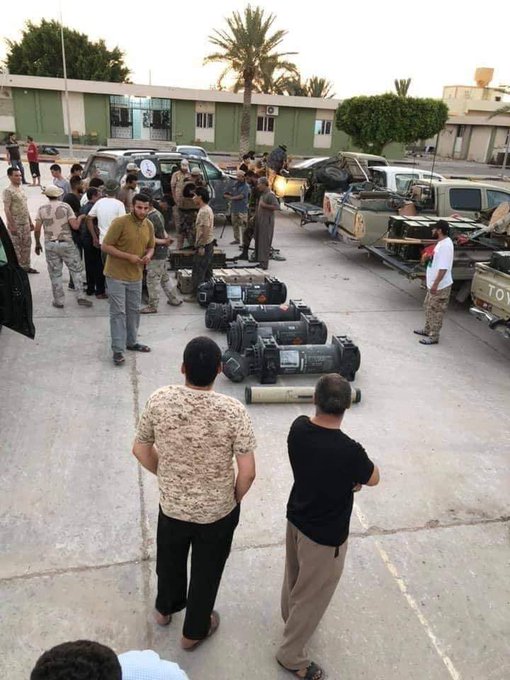
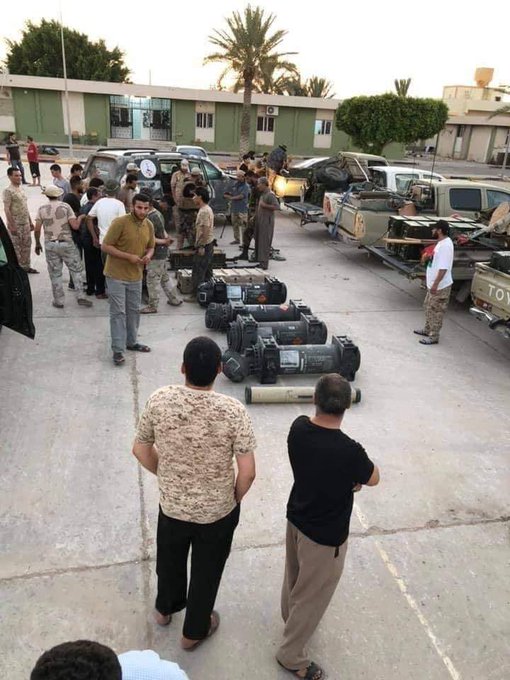
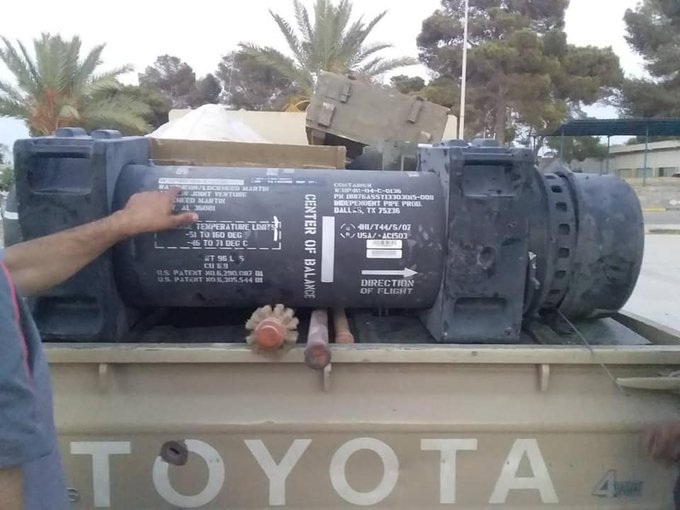

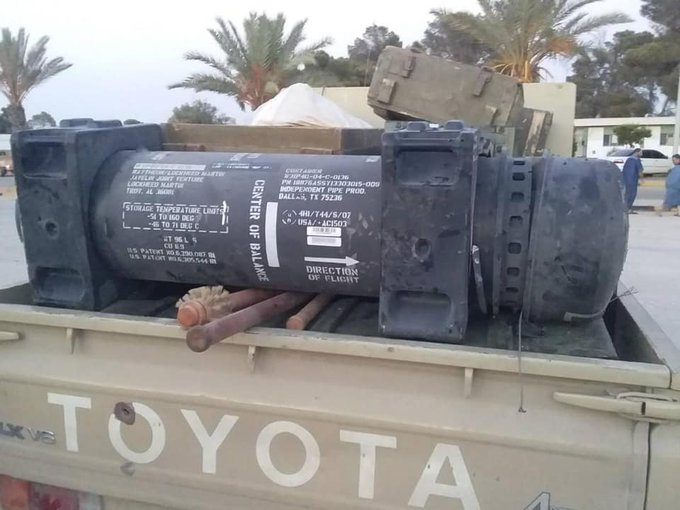
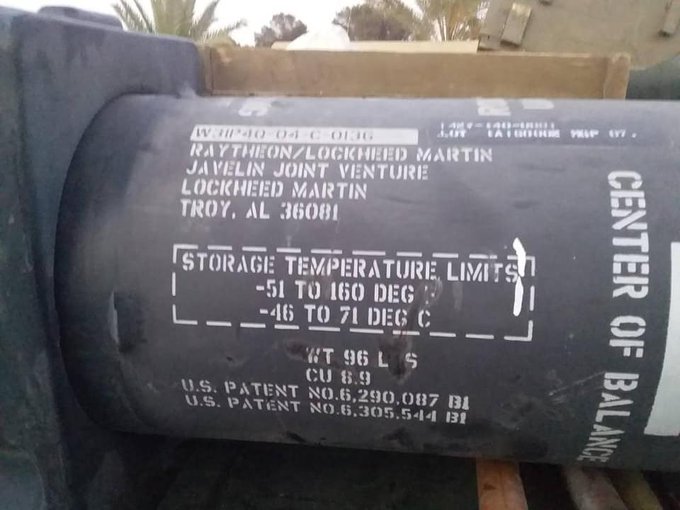

0 Comments:
Post a Comment
Subscribe to Post Comments [Atom]
<< Home